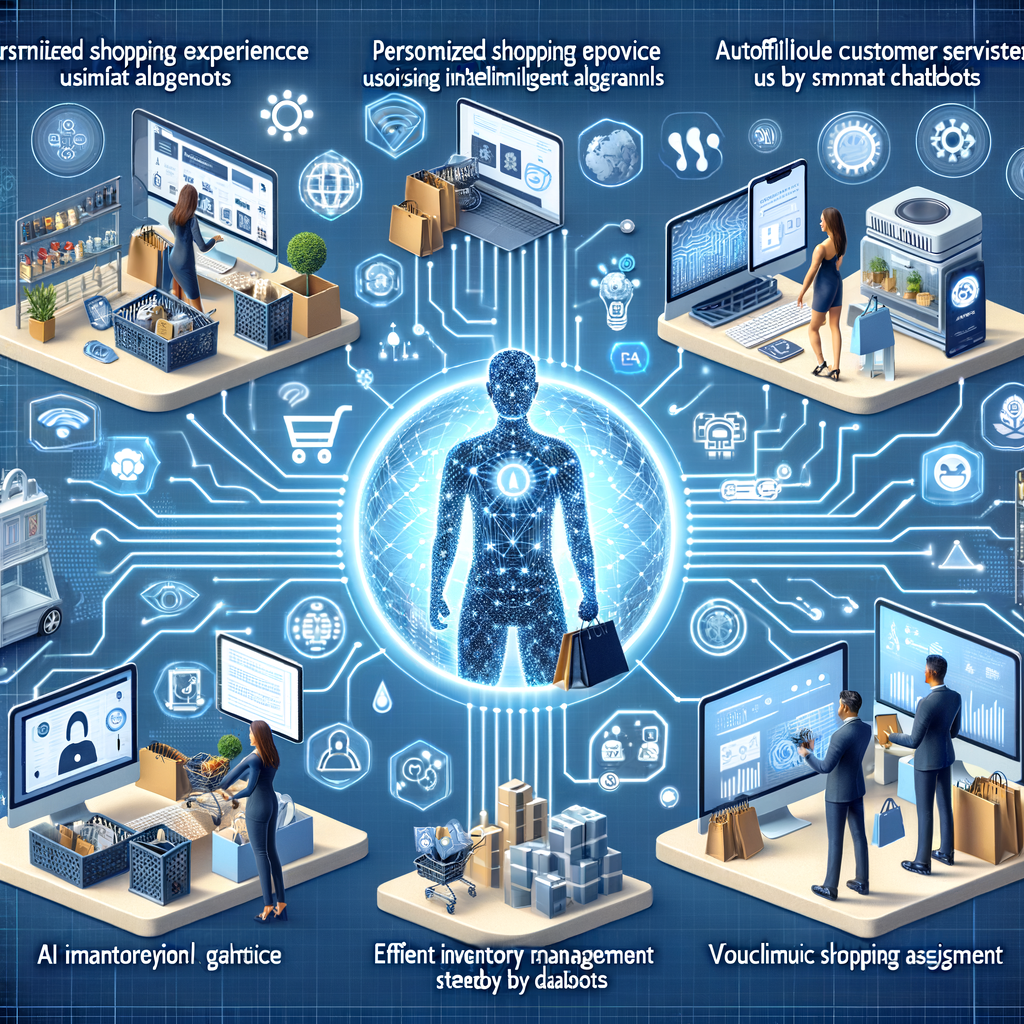Did you know that 80% of businesses are expected to adopt AI in their e-commerce operations by 2025? The retail landscape is experiencing a seismic shift, and I’m here to guide you through the fascinating world of AI in e-commerce. From chatbots that never sleep to predictive analytics that seem almost magical, artificial intelligence is revolutionizing how we buy and sell online!
Understanding AI’s Role in Modern E-commerce
While brick-and-mortar stores still play a vital role in retail, artificial intelligence has revolutionized how we shop online. Just like having a personal shopping assistant who knows your exact preferences, AI has evolved from simple product recommendations to becoming the backbone of sophisticated e-commerce operations.
The Evolution of AI in Digital Shopping
Remember the early days of online shopping, when websites would show you random products without any personalization? Today’s AI-powered platforms are remarkably different. They analyze millions of data points to understand shopping patterns, much like how a skilled salesperson remembers regular customers’ preferences, but at an unprecedented scale.
Transforming Business Operations and Consumer Experience
For businesses, AI acts like a tireless employee who simultaneously manages inventory, predicts trends, and helps customers 24/7. Meanwhile, consumers enjoy personalized shopping experiences similar to having a dedicated personal shopper who anticipates their needs before they even express them.
Core AI Technologies Reshaping Online Retail
Smart Recommendation Systems
Just as Netflix suggests shows based on your viewing history, e-commerce platforms use machine learning to recommend products. For instance, when you browse winter coats, the system might suggest matching scarves or gloves, creating a more natural shopping flow.
AI-Powered Customer Service
Modern chatbots have come a long way from simple automated responses. Using Natural Language Processing, they can now engage in meaningful conversations, much like talking to a knowledgeable store associate who can answer complex questions about products and services.
Visual Search Revolution
Imagine seeing someone wearing shoes you love – now you can simply snap a picture, and AI will find similar products online. This computer vision technology has transformed how we discover and shop for products, making the experience more intuitive and natural.
Essential AI Applications in Online Retail
Smart Inventory Management
Just as a skilled warehouse manager knows exactly what’s in stock, AI systems continuously monitor inventory levels, predict demand patterns, and automatically reorder products when needed. This prevents the frustrating out-of-stock situations that often plague online shopping.
Enhanced Security and Fraud Prevention
Think of AI as a vigilant security guard who can spot suspicious behavior instantly. By analyzing patterns in transactions, AI systems can detect and prevent fraud more effectively than traditional methods, protecting both businesses and customers.
Dynamic Pricing Strategies
Similar to how airline tickets change prices based on demand, AI enables e-commerce platforms to adjust prices in real-time. This ensures competitiveness while maximizing profits, much like a skilled pricing manager who knows exactly when to offer discounts.
Understanding Customer Behavior
AI analyzes shopping patterns much like a market researcher who can track thousands of customers simultaneously. This helps businesses understand not just what customers are buying, but why they’re buying it.
Making AI Work for Your E-commerce Business
Evaluating Your AI Readiness
Before diving into AI implementation, businesses need to assess their technical infrastructure and data management capabilities, similar to checking if your house’s foundation is strong enough before adding a second floor.
Smart Integration Approaches
Implementing AI is like building a puzzle – each piece needs to fit perfectly with your existing systems. Starting with smaller, manageable projects and scaling up gradually often leads to more successful integration.
Navigating Common Obstacles
Like any major technological advancement, AI implementation comes with its challenges. From data quality issues to staff training needs, understanding these potential roadblocks helps in developing effective solutions.
Financial Planning and Returns
While AI implementation requires significant investment, much like opening a new store location, the returns can be substantial when planned properly. Consider both immediate costs and long-term benefits when building your AI strategy.
Conclusion
The integration of AI in e-commerce isn’t just a trend – it’s becoming essential for survival in the digital marketplace. By embracing these technologies, businesses can enhance customer experiences, optimize operations, and drive growth. Ready to transform your e-commerce business with AI? The future of retail is here, and it’s smarter than ever!

